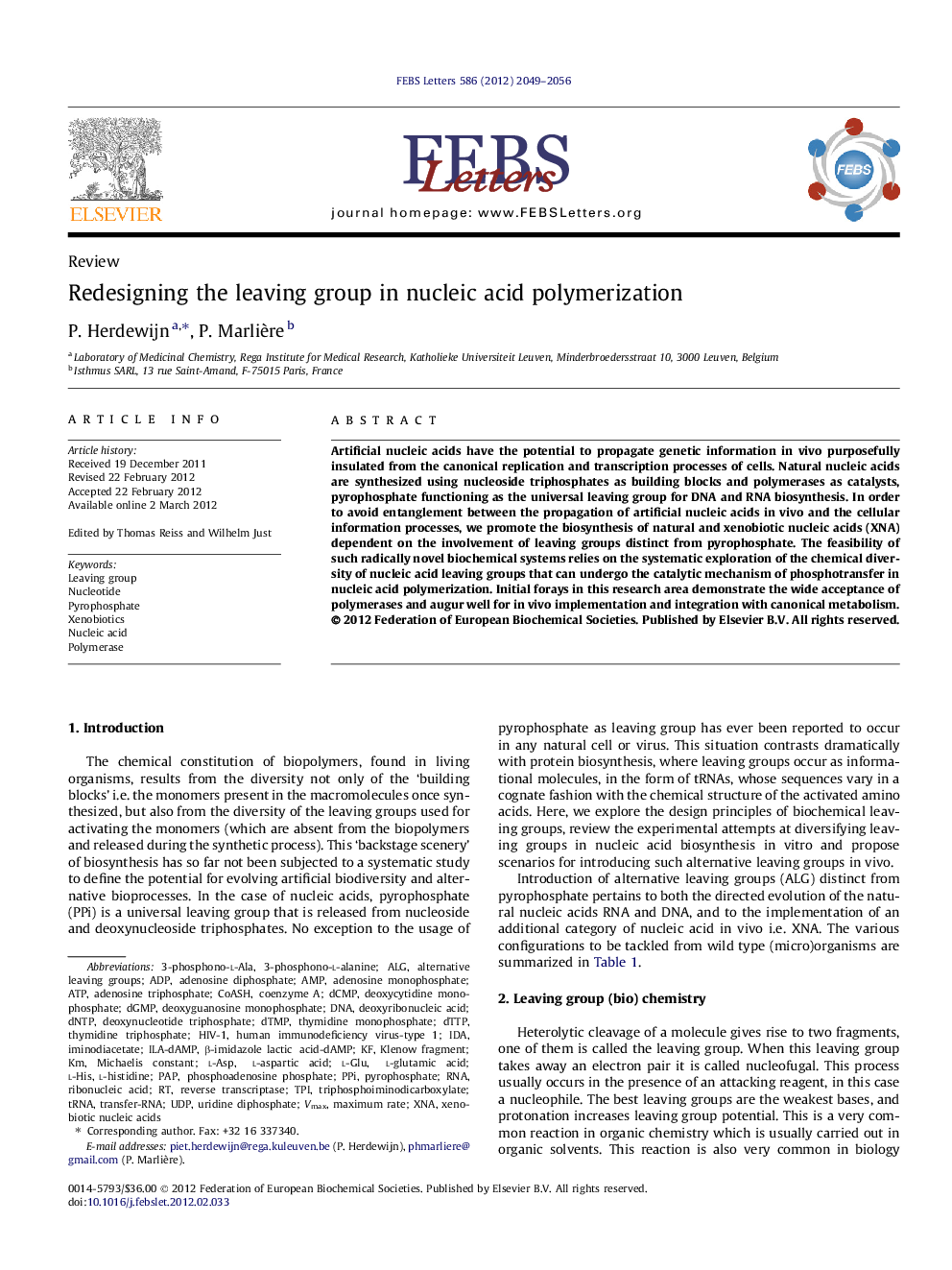| Article ID | Journal | Published Year | Pages | File Type |
|---|---|---|---|---|
| 10871615 | FEBS Letters | 2012 | 8 Pages |
Abstract
Artificial nucleic acids have the potential to propagate genetic information in vivo purposefully insulated from the canonical replication and transcription processes of cells. Natural nucleic acids are synthesized using nucleoside triphosphates as building blocks and polymerases as catalysts, pyrophosphate functioning as the universal leaving group for DNA and RNA biosynthesis. In order to avoid entanglement between the propagation of artificial nucleic acids in vivo and the cellular information processes, we promote the biosynthesis of natural and xenobiotic nucleic acids (XNA) dependent on the involvement of leaving groups distinct from pyrophosphate. The feasibility of such radically novel biochemical systems relies on the systematic exploration of the chemical diversity of nucleic acid leaving groups that can undergo the catalytic mechanism of phosphotransfer in nucleic acid polymerization. Initial forays in this research area demonstrate the wide acceptance of polymerases and augur well for in vivo implementation and integration with canonical metabolism.
Keywords
TPIdeoxycytidine monophosphatePAPADPdNTPVmaxUDPl-hisDTMPALGIDAPPIdGMPDTTPAMPDeoxyguanosine monophosphatetRNAdCMPL-ASPDNAl-Glul-Histidineuridine diphosphateAdenosine TriphosphateATPadenosine diphosphateadenosine monophosphateIminodiacetatedeoxyribonucleic acidl-glutamic acidRNAribonucleic acidl-aspartic acidNucleic AcidXenobioticsReverse transcriptaseLeaving groupthymidine triphosphatethymidine monophosphateMaximum ratedeoxynucleotide triphosphateKlenow fragmentMichaelis constanthuman immunodeficiency virus-type 1NucleotideHIV-1PolymerasePyrophosphatecoenzyme ACoASH
Related Topics
Life Sciences
Agricultural and Biological Sciences
Plant Science
Authors
P. Herdewijn, P. Marlière,
